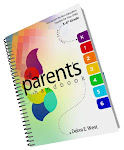Technology and The Preschool Classroom: Part 2
According to an article from http://www.greatschools.com/ , technology should be apparent in the preschool classroom. Continuing the article from yesterday, below is the article written by Diana Townsend-Butterworth on this topic.
What to expect in preschool: The classroom
By Diana Townsend-Butterworth
Walk into your child's preschool classroom and you will find a large, colorful room divided into carefully planned interest areas. It will be filled with bright, primary colors and a variety of materials for your child to manipulate, explore, snuggle, play with, and share. The room is especially designed to encourage your child's natural curiosity and desire to learn about her world. Your child's classrooms will have many of the following learning centers, but the arrangement and composition of the centers will vary.
1. Large motor skills: Children crawl through tunnels, climb and balance, hop and jump, and bounce and dribble balls, developing coordination, balance, and large muscle control. Some classrooms have an area designed especially to encourage the use and development of large muscles. Other preschools will have a separate room with tunnels, balls, and climbing equipment.
2. Rug: This is where the entire class gathers to listen as the teacher reads a story or explains an upcoming project. Children often begin and end the day on the rug area.
3. Sensory: One child is experimenting at the water table to find out what floats and what sinks. Another is pouring sand through a funnel into containers of different sizes. Water and sand tables equipped with boats, cups, funnels, and sieves encourage children to explore mediums like water and sand, to understand the physical world, and to develop concepts underlying math and physics.
4. Science: Plants, classroom pets, and aquariums are found here. One child may plant a seed in a pot, carefully patting down the soil, while another measures the temperature in the aquarium, a third feeds the guinea pig, and a fourth examines a seashell. The teacher puts out interesting objects from nature, such as leaves, rocks, and seashells, for children to examine with a magnifying class, plus paper and markers to draw them.
5. Computer: Several children are clustered around a computer checking the charts and picture next to it. Some classrooms will have a table against a wall with one or more computers with chairs grouped around them to encourage children to work together. They will stock basic early-learner software such as phonics or counting games.
6. Outdoor playground: Outside, there will also usually be a safe, enclosed area with structures for climbing and balancing, and balls of different sizes to encourage large muscle control and coordination.










0 comments:
Post a Comment